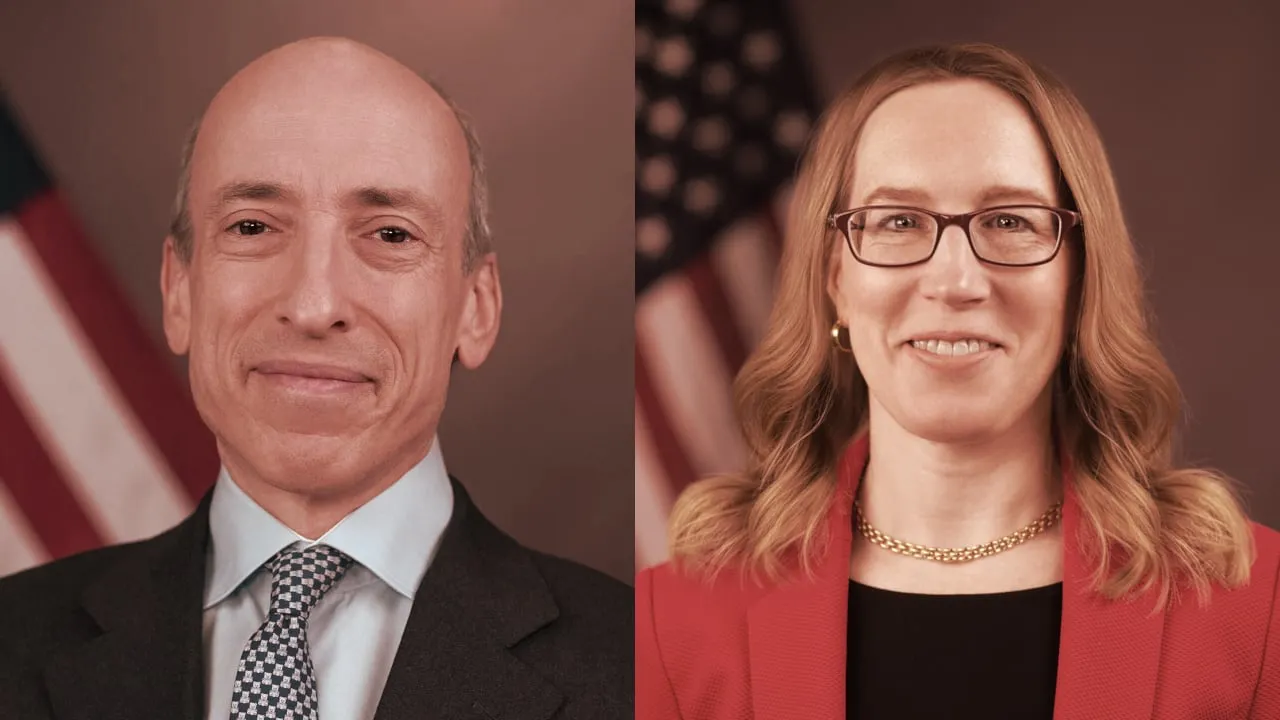U.S. Securities and Exchange Chairman Gary Gensler has made it clear that he’s getting tough on crypto. And today the American regulator revealed he’s not leaving out the industry’s most complex space: DeFi.
In a Friday announcement, the SEC said in a press release that it would revisit plans to change the definition of what is considered an exchange. This would include DeFi—or decentralized finance—protocols like decentralized exchanges.
The announcement said that the body was revisiting a rule first proposed last year—but will contain language to target the digital asset world, too.
“Make no mistake: many crypto trading platforms already come under the current definition of an exchange and thus have an existing duty to comply with the securities laws,” Gensler said in the Friday release.
“Investors in the crypto markets must receive the same time-tested protections that the securities laws provide in all other markets.”
But the idea wasn’t received well by all regulators: SEC commissioner Hester Peirce said during a Friday meeting that the announcement “sends a message that we are uninterested in facilitating innovation and competition in the financial markets and instead seek to protect incumbents.”
Peirce further criticized the Commission's plan as overly broad and said its "ambiguity undermines fundamental First Amendment protections." Peirce elaborated: "Because the release makes everybody involved in the relevant blockchain ecosystem part of a 'group,' it creates significant ambiguity around what speech requires government pre-approval, which will unavoidably chill constitutionally-protected speech. "
DeFi is the space in crypto which aims to make things like taking out a loan or earning interest on savings quicker, accessible to all, and automated—unlike banks—via decentralized apps. These tools make it possible to trade or borrow crypto assets without third-party intermediaries, and often without revealing personally identifiable information.
An incredibly complex and fast-moving industry, DeFi is praised for the degree of decentralization it gives users but criticized for its lack of security: its experimental platforms are prone to hacks.
Perhaps the most popular decentralized apps are decentralized exchanges (DEXs) like Uniswap, which allow anyone to swap crypto coins and tokens without ever revealing any information like a name or address.
Curve Finance, is the third largest DEX with a 24-hour trading volume of $191 million, according to CoinGecko. Users on the platform’s Telegram group told Decrypt that it would be hard for the SEC to enforce its rules outside of the States and that it couldn’t “strong arm compliance.”
Others in the crypto industry were quick to criticize the idea, too. Jason Allegrante, Compliance Officer at crypto infrastructure giant Fireblocks, said that the “the real world impact of exchange-style regulation for decentralized protocols may be to stifle innovation in the United States and drive businesses offshore.”
DEXs do not require users to reveal where they are based. And virtual private network (VPN) apps allow would-be users to skirt around restrictions by basing their IP address in another country, allowing them to execute trades on certain crypto apps—even if they are banned in the U.S.
Orca, the largest DEX on the Solana blockchain by volume, last month stopped American users from using its platform, warning would-be traders from using a VPN.
The SEC has targeted some of the most recognizable American crypto brands this year, such as exchanges Coinbase and Kraken. Its crackdown intensified following the quick and unexpected bankruptcy of digital asset behemoth FTX in November.
Gensler has repeatedly said that the vast majority of digital assets fall under the securities definition.
The DeFi world has been in the crosshairs of regulators and lawmakers for some time now. Last year, the Treasury Department sanctioned the “coin mixer” app Tornado Cash, which helps obscure otherwise transparent transactions, because North Korean hackers were allegedly using it to launder funds.

